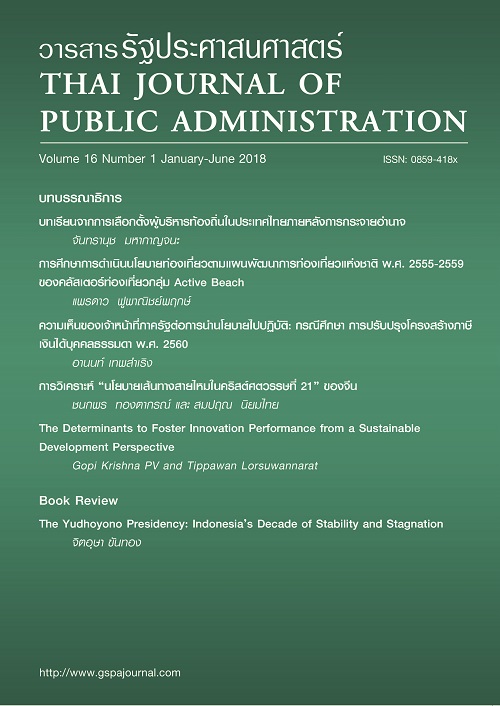The Opinion of Government Officials on Policy Implementation: A Case Study of the Structural Reform of Personal Income Tax in 2017
Keywords:
Policy implementation, personal income tax, the income distribution, inequalityAbstract
In terms of income distribution in Thailand, there has been marked inequality between people with low incomes and those with high income for a long time. Therefore, the purpose of this article is to study the policy implementation of the structural reform of personal income tax in 2017. The researcher studied the policy formulation and policy implementation of The Thai Revenue Department. The results showed that: 1) Regarding the level of policy context, stable economic conditions are necessary to improve the personal income tax structure in 2017, build fairness for all citizens, and for the public interest. 2) Concerning the level of policy feasibility, human resources and technology are at sufficiently high levels for new taxation. However, there is a lack of appropriate budget allocation. 3) With regard to the level of the Policy Process, determining specifically responsible persons, and identifying the tax base, are both explicit factors. According to these results, the problem of reduced tax revenues can appear. However, at the regional level, the number of public officials; amount of training, budget and technology are still insufficient. 4) In terms of the level of the policy’s performance, changes in the level of the tax burden are a consequence of progressive tax. According to this result, it enhances the entry of the taxation system.and increases taxation’s neutrality. Moreover, cases of tax evasion, tax litigation and amounts of tax receivables are all decreased.



